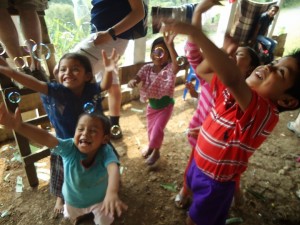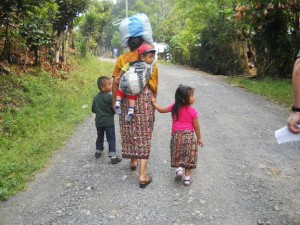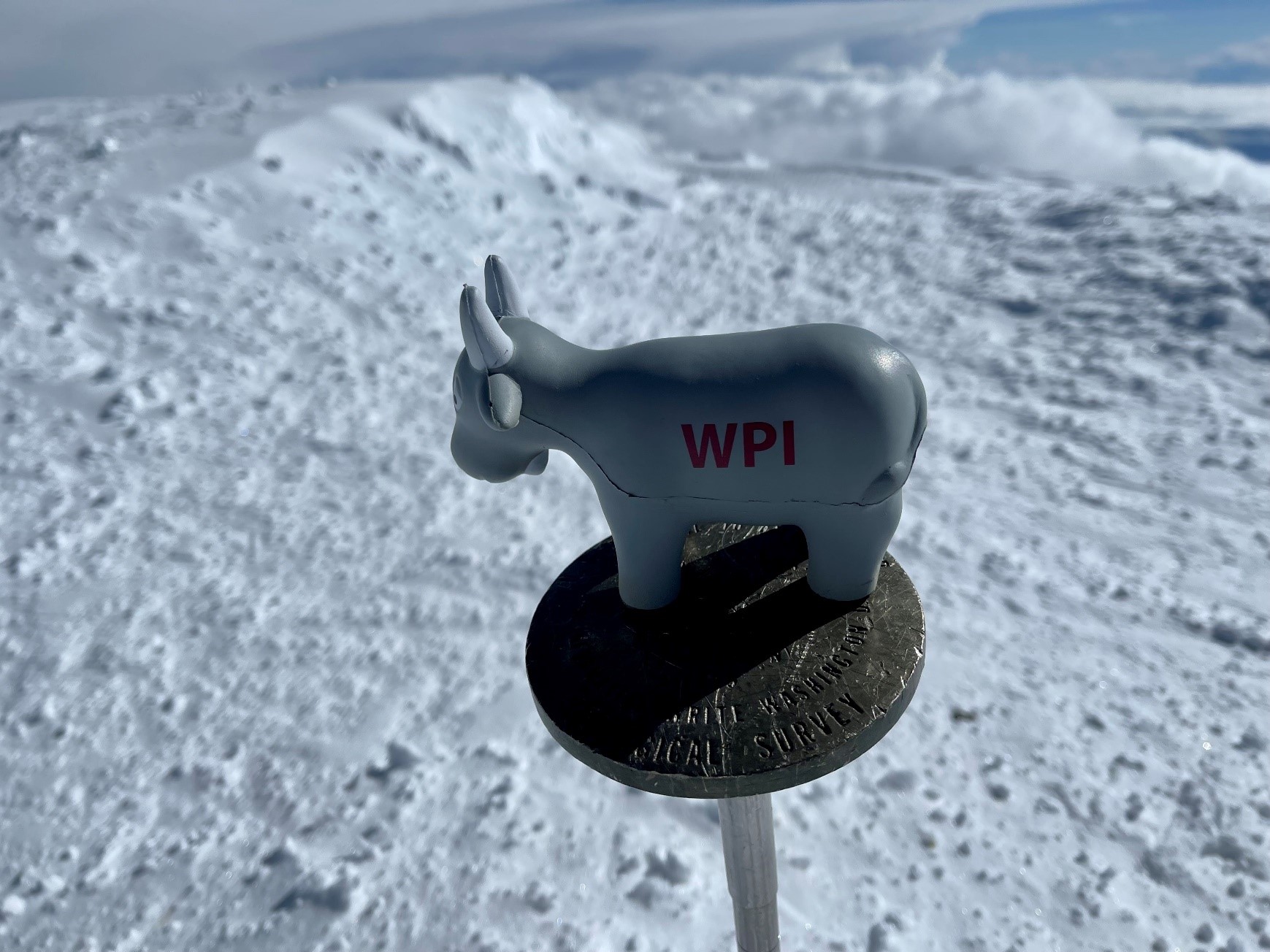 The town of Guachtu’uq, Guatemala, lies on a steep mountainside. To get water, villagers must haul heavy buckets up a dirt road from the “finca”—a water collection box at a spring privately controlled by wealthy landowners. Water from the finca is visibly unclean, and in the dry season it sometimes runs dry.
The town of Guachtu’uq, Guatemala, lies on a steep mountainside. To get water, villagers must haul heavy buckets up a dirt road from the “finca”—a water collection box at a spring privately controlled by wealthy landowners. Water from the finca is visibly unclean, and in the dry season it sometimes runs dry.
In May the WPI student chapter of Engineers Without Borders (EWB) returned to Guachtu’uq to assess two pilot rainwater collection systems the group installed in January, and to gather data for the next phase of the project. The recent travel team included Jessie Ciulla ’16, Caryn MacDonald ’14, Thomas Moutinho ’15, and Sebastian Vergara ’15, accompanied by Professor Bob Hersh and professional mentor Mike Reiter ’00.
The WPI-EWB chapter has been working with the people of Guachtu’uq since 2008, under the guidance of the national organization. EWB-USA is part of an international network that brings together students, faculty, and professionals with the stated mission of “supporting community-driven development programs worldwide by collaborating with local partners to design and implement sustainable engineering projects, while creating transformative experiences and responsible leaders.”
The WPI team enjoyed homestays—and authentic home-cooking—in nearby St. Cristobal. The city has running water for only half the day, so the students got to experience “water insecurity” directly, in the form of cold “bucket showers” at the end of their workday.
 “The hardest part of the project is not the technical implementation, but the social aspects. We have to make sure that what we’re doing is culturally accepted, and that the owners understand their responsibilities. It’s hard to have some conversations, and things get lost in translation. We know that there are tensions and disputes over water here, since it’s such a scare resource.” MacDonald calls the work “40 percent engineering and 60 percent community building.”
“The hardest part of the project is not the technical implementation, but the social aspects. We have to make sure that what we’re doing is culturally accepted, and that the owners understand their responsibilities. It’s hard to have some conversations, and things get lost in translation. We know that there are tensions and disputes over water here, since it’s such a scare resource.” MacDonald calls the work “40 percent engineering and 60 percent community building.”
Reiter, an EWB member for six years, enjoyed his first chance to travel with the organization. “It is an amazing experience,” he reports. “The people in the community were so open and welcoming to us. We really got to know the families and learn about their lives, which will help us design better water systems to improve their quality of life.” In his role as a mentor, he says he treats the students exactly as he treats the people who report to him in his job at Pratt & Whitney.
“The students are responsible for planning and execution of the project,” he says. “My role is to monitor their progress and give them guidance to ensure they are considering the right topics and making the right decisions. I am held ultimately responsible for their work by EWB-USA, so I do the final review.”
In January 2014 another travel team will return to install the next 10 tanks. “It’s an ambitious goal, says MacDonald, “but our club is committed to providing a tank for every household.”
Get involved! Email ewb-execs@wpi.edu to learn more.
Learn more about EWB-USA
- By Joan Killough-Miller
The group’s long-term goal is to install collection systems for all of Guachtu’uq’s 35 households, with gutters custom designed to maximize rainwater catchment from the unique configuration of each roof. But engineering is the easy part, MacDonald notes.

